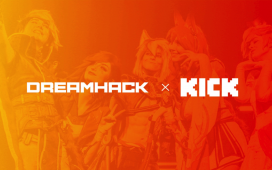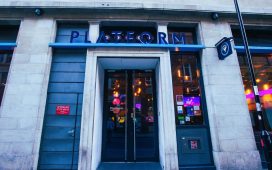When the first line-up of Overwatch League (OWL) teams came to light, the fact that Comcast Spectacor
![]()
On the most recent TEO Podcast episode, Tucker Roberts, president of Spectacor Gaming and the Philadelphia Fusion ![]()
Roberts was well aware that, in many games, esports fans tend to follow their favorite players as they transfer from one roster to another, and often support multiple teams. “There was a lot of security that was going to come with a league structure. That’s why, when we saw the Overwatch League terms, I was advocating for it.”
Related Article: OWL Sees Strong Viewership Despite Fewer Matches in Final Week of Stage One
Chief Business Officer for Spectacor Gaming and Philadelphia Fusion, Joe Marsh joined the conversation. He said that when Spectacor was evaluating how to put together a PNL for what would become the Fusion—essentially a brand new asset—they only had three months.
“We built a very conservative model,” Marsh said. “We have a history, obviously, in live events here at the Wells Fargo Center, and owning the Philadelphia Flyers, but in terms of gaming, we were pretty new. We had to start from scratch, and build a fanbase while we were trying to get our players into the country…our model, early on, was ‘let’s focus on building the brand, a coalition of fans that will come along for the journey,’ and less focused on bringing massive amounts of sponsors and selling jersey patches.”
Despite a mixed performance throughout the inaugural season of the OWL, the Fusion ended up playing in front of 20,000 fans at the Grand Finals at the Barclays Center in Brooklyn. “We actually bussed Fusion fans up from Philadelphia, for free,” explained Roberts. “Experiences like that was really the first opportunity to have Philadelphia fans to see something live with some stakes.”
“From a financial standpoint, going to the Grand Finals raised the profile of the org,” said Marsh. “Going into the offseason, our minds shifted to now monetizing the investment. We were able to secure a lead partner in Arris, and then our second partner in Lenode.” These deals actually made the Fusion the first OWL team to secure two separate jersey sponsors.
Later on in the conversation, Marsh also commented on where the league is developing financially, and the highlights from an ROI perspective.
“The biggest thing that the Overwatch League did in season one was build that foundation,” Marsh added, citing the OWL’s list of non-endemic sponsors, and media partners both in the U.S. and abroad. “Right now we’re in LA, we’re kind of limited in our revenue streams, but once we’re back in Philly and you have your venues, it really transitions to a traditional sports model, which we know like the back of our hand.”
The TEO Podcast is available on both iTunes and Spotify.















